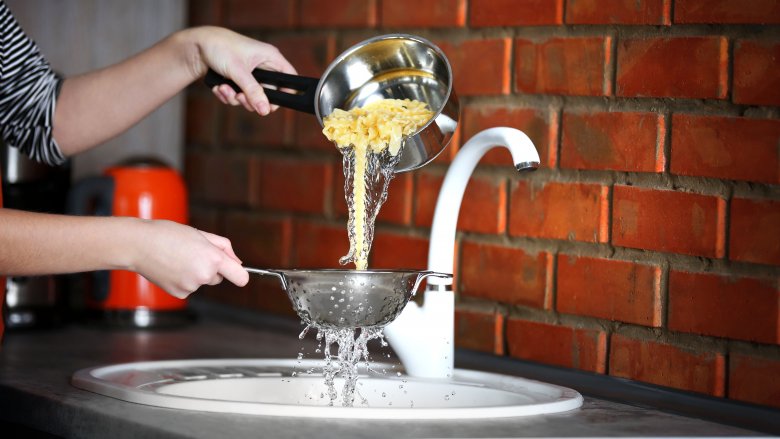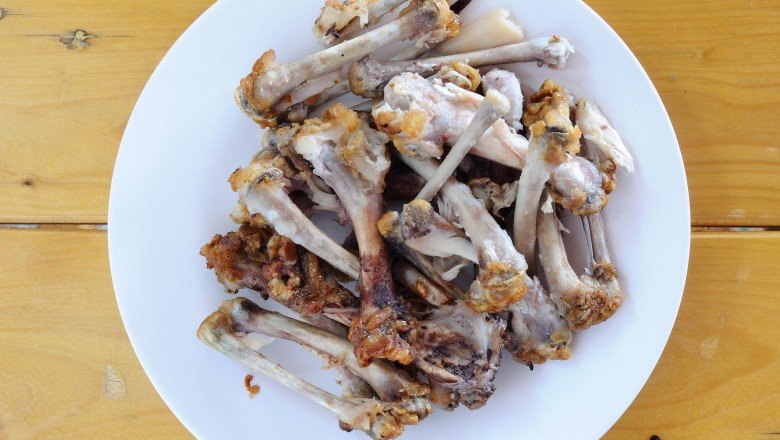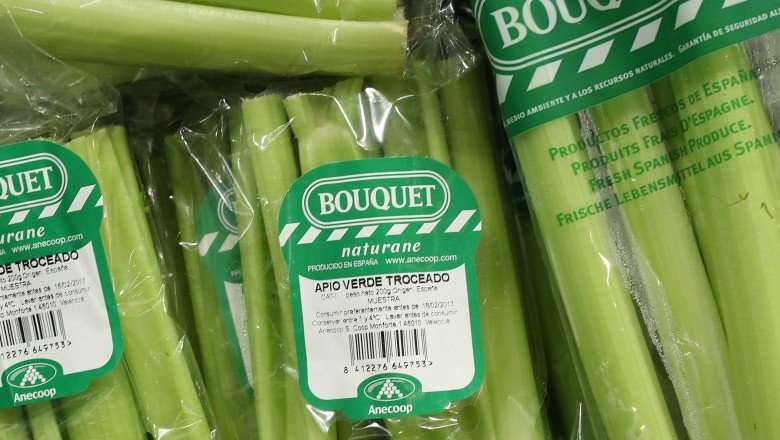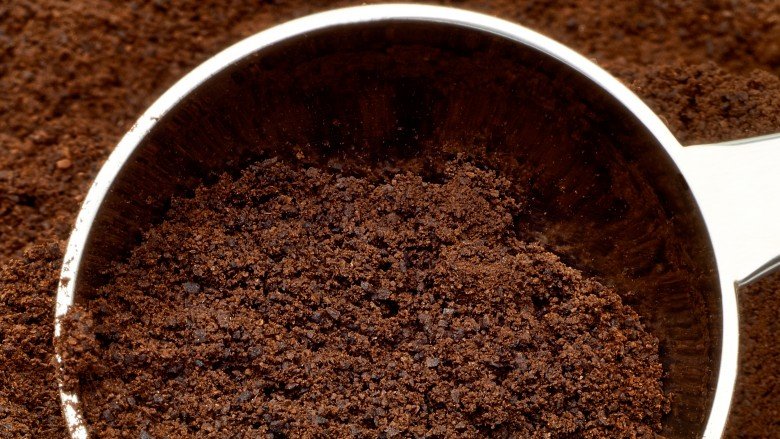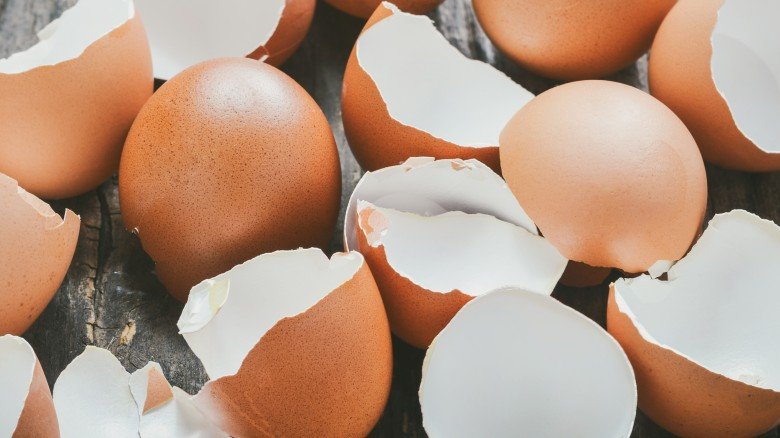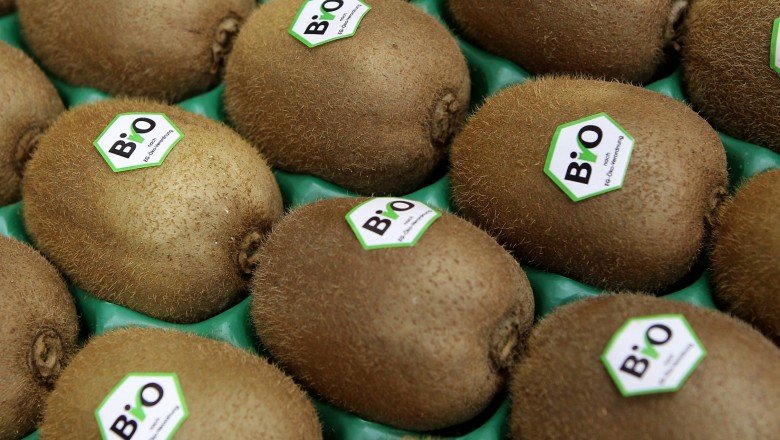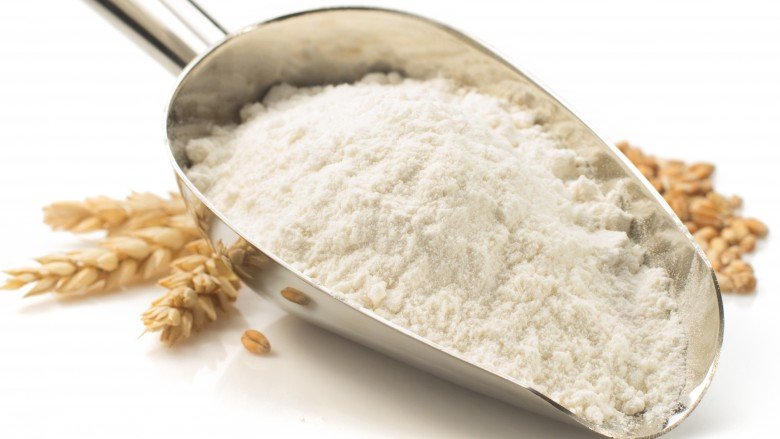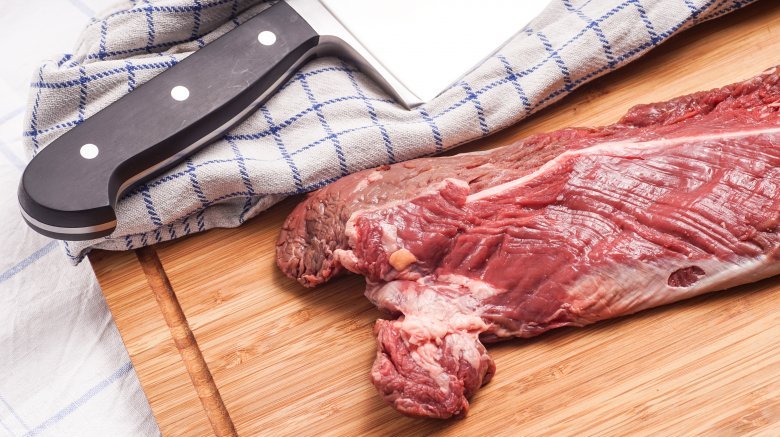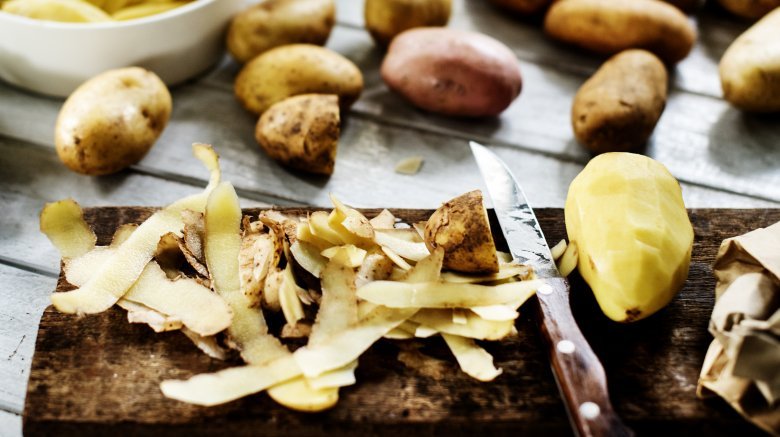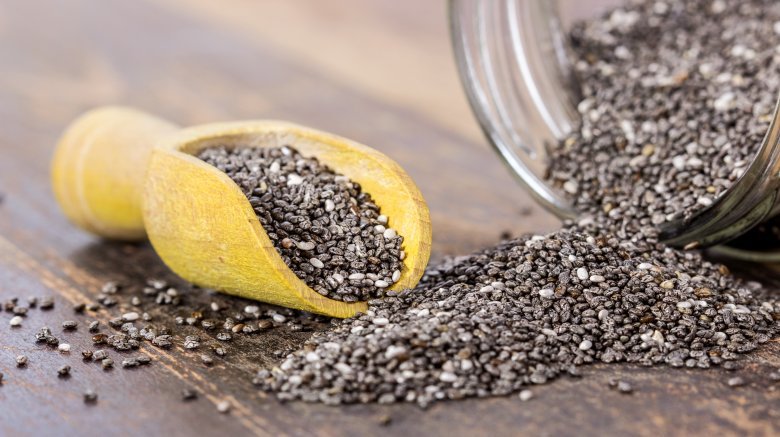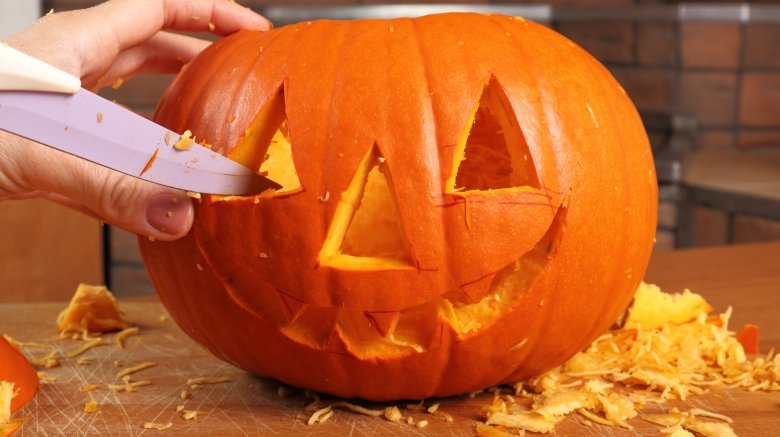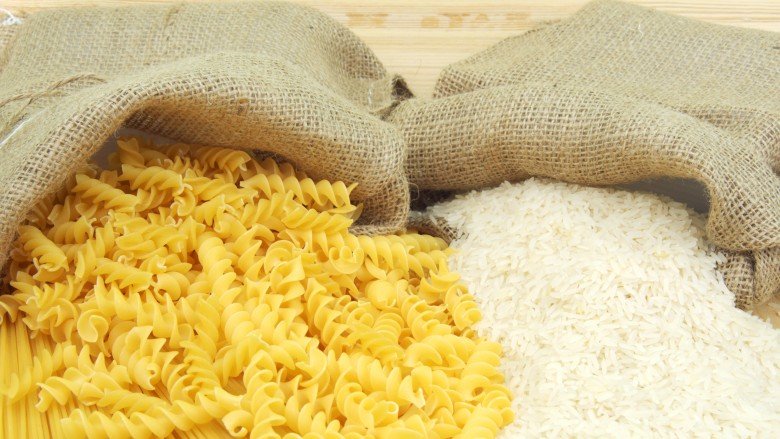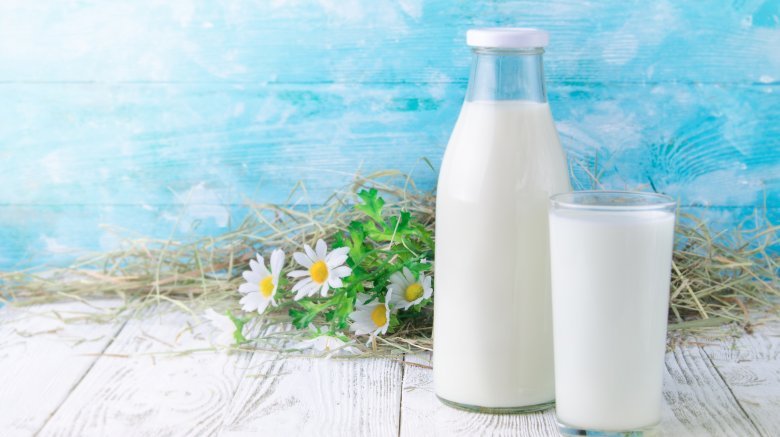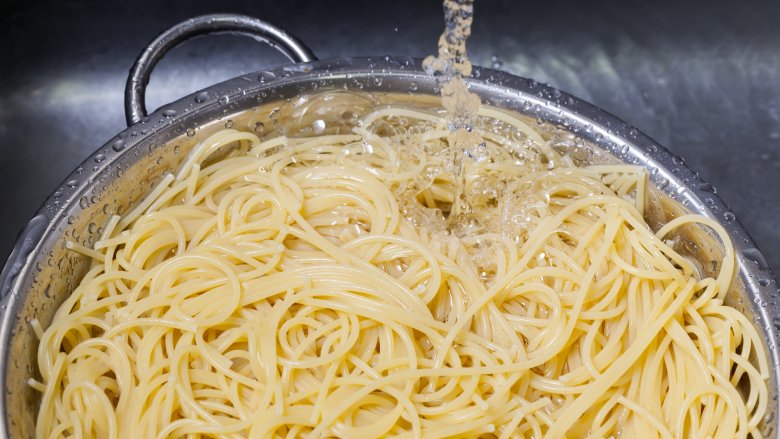Things You Should Never Put Down Your Drain
It doesn't matter if you're making a quick meal for yourself or a giant Thanksgiving feast. When it comes time to clean up, you're going to make it easy on yourself and toss whatever food waste you have down your sink and garbage disposal, right? Unfortunately, that's not usually the best idea — depending on what you're cooking. Garbage disposals make the life of a home chef a lot easier, but how often do you really think about your kitchen's unsung hero? I'm guessing not a lot. However, if you keep abusing it and treating it like a landfill, you're going to run into all sorts of disgusting and smelly problems, some of them quite costly. Read through this list of things you should never put down your drain, and then move your trash can a little bit closer to your sink — you're going to be using it a lot more.
Bones
I'm not talking about a long-running drama on Fox. Bones, specifically from poultry, beef, pork, and lamb are not safe to toss down your sink. Thick bones are rough on even the most industrial garbage disposal blades. Bones are much too dense and hard for garbage disposals to properly "chew" them up. However, not all bones are created equal. If you're cleaning fish, it's perfectly fine to toss the small bones down the sink; tiny bones break down easily and will not cause a problem. Anything bigger than a fish bone should be thrown away in the garbage and kept away from your furry friends.
Fibrous foods
You've probably been told that a diet high in fiber is healthy for you, but if you give your sink and garbage disposal the same kind of diet, it will kill them in no time. Fibrous foods like celery, corn husks, and asparagus wreck your sink. You know when you're eating a crisp piece of celery (maybe slathered with peanut butter to bring back lunchbox memories) and the little stringy bits get caught in your throat? Well, those same strings get caught around your garbage disposal's blades, and if you frequently put celery or other fibrous foods down your sink, those strands will cause what can only be described as a food hairball.
Coffee grounds
You probably make a pot of coffee before you leave for work, and if it's your day to do it at the office, you're probably making another pot there before noon. After you brew a pot of joe, don't toss the grounds down the sink. (Although, if the sink at work backs up you can always blame Kim from HR.) When thrown down the sink, coffee grounds can cause a buildup in your pipes. So what should you do with your old coffee grounds? Even if you don't compost, coffee grounds are a natural deterrent to a lot of garden pests! Just sprinkle them around your garden to prevent unwanted bugs and critters. And if you're ever going to try some of the crafts you browse on Pinterest, coffee grounds have all sorts of artistic uses because they're a natural dyeing agent.
Eggshells
When it comes to items that should or shouldn't go down your kitchen sink, eggshells are the most controversial. Most folks agree that eggshells are harmful to sinks because the eggshells' membrane can cause an adhesive effect and bond to the blades of the garbage disposal. A few say eggshells sharpen the blades, but this is an old wives' tale. You don't have to just put them in the garbage though — eggshells are actually pretty useful. Eggshells are able to get your kitchen utensils sparkling clean, and because they're rich in calcium they're the perfect item to start a compost bin.
Produce stickers
I really can't tell you when or why I started doing it, but every time I enjoy a piece of fruit, I need to slap the tiny sticker on my hand. This might be my own weird habit, but if you don't do so already, you should take those stickers off before you wash your fruit so they don't slide down your drain. They're super small and totally forgettable. You wouldn't think they'd cause much harm, but actually they aren't water soluble and will just build up in your drain and stick to your pipes.
Flour
This kitchen staple is bad news when it comes to putting it down your sink. Think about how flour gets when you mix it with water. It creates a substance that can best be described as a rival to Elmer's Glue. Flour will instantly start to clog your pipes and even cause your garbage disposal to get stuck. Just like rice and pasta, a small amount probably isn't the end of the world, but try not to dump a cup of it down your sink unless you want a visit from your local friendly plumber who will gladly unclog your sink for a hefty fee.
Raw meat and trimmings
You've been there, we all have. You're prepping meat for dinner, and you've got a bit of the trimmings. Just throw them in the garbage disposal, right? Not so fast.
The Oregonian writer Carrie Sturrock wanted to know what the pros thought of this, so she got in touch with the Portland Bureau of Environmental Services. They told her that she absolutely shouldn't be throwing any kind of raw meat or trimmings down the drain, because all that fatty build-up can congeal and clog drain pipes for a mess you don't even want to think about. Sturrock — and her readers — offered up a pretty novel solution for getting rid of these bits of leftovers, and that's digging a below-ground composting hole that'll keep away unwanted critters and smells while creating some of the best compost you could hope for in a matter of months.
Potato peels
Potato peels seem innocent enough, but they can cause some serious problems if you try to get rid of them down the garbage disposal. It only takes a few to clog a drain, and since they're so full of starch, they have a tendency to clump together and can congeal into something almost like a paste. You can see where this one's going!
Fortunately, this one is an easy one to fix — don't throw out those peelings at all. Instead, take some advice from The Kitchn and roast the peels for a side or a snack. Throw them in the oven right when you're done peeling them (and before they start to turn color), and you'll have an awesome treat instead of a plumbing nightmare.
Pits, seeds, and kernels
You're probably not going to make the mistake of tossing a large pit like one from a peach into your garbage disposal, unless you do it by accident. But smaller pits and seeds can cause just as much of a headache, and that includes things like cherry pits and apple cores. Those unpopped kernels in your bag of popcorn can be a major headache, too, and they'll easily clog your drain.
Other, more seemingly harmless kinds of seeds can cause problems, too. In 2014, Time reported on a 39-year-old man who ended up in the hospital after swallowing some chia seeds and following that with some water. Chia seeds can absorb around 27 times their own weight in water, so imagine what happens when you pour some down the drain and then wash your hands.
Any part of a pumpkin
An inevitable part of Halloween is deciding what to do with all the stuff that came out of the pumpkins you're carving. Sure, you'll probably turn the seeds into a tasty snack, but what about all that other gunk? There are a few reasons you shouldn't put it down your drain, and we'll start with the fact that it's stringy, and it'll get tangled in your garbage disposal. Pumpkin also has a unique — and pesky — quality, and that's an ability to harden. Have you ever forgotten to clean off your pumpkin-carving tools right away? You'll end up with all kinds of crusty tools, and you definitely don't want all that hard gunk in your drain. Make this mistake just once and it can be so bad that the only way to fix it is to start replacing parts. No one wants to have to deal with that!
Pasta and rice
If you're like me and absolutely love carbs, you're most likely cooking pasta and rice several times a week, and while I rarely have any leftovers, sometimes a few rigatoni end up down the drain when I'm cleaning up. Pasta and rice are super high in starch and they continue to expand (even after they're cooked) when they come in contact with water. While it wouldn't be a big deal if a single strand of angel hair somehow slithers down your sink, don't ever toss an entire pan of mushroom risotto that didn't come out to your liking in your garbage disposal. And while we're at it, you shouldn't be draining your pasta over the sink either — more on that next.
Milk and milk products
Milk expires in the blink of an eye, so you've probably poured the contents of a half-empty milk jug down the drain more than a few times. But pouring milk out can have a huge environmental impact, so much so that businesses in the UK can be fined for doing exactly that. The problem is that the process of breaking milk down uses a lot of oxygen. When that oxygen is used up by that process, that leaves less for the living things that rely on it. Milk in large enough quantities can suffocate entire ecosystems, and large-scale milk spills have previously wiped out entire fish populations.
Products made with milk can have the same devastating impacts, and that includes things like yogurt, cheese, butter, and cream. There are programs put in place for the disposal of commercial milks and milk products, but what should you do with yours? Drink up! Watch expiration dates and buy smaller quantities to make your habits more environmentally-friendly.
Pasta water
OK, so draining your pasta over the sink isn't going to do any damage to your pipes — but it's a pretty major cooking crime you should be aware of. Also called "liquid gold" by many in-the-know chefs, the water you've used to boil your pasta is filled with tons of starch that can (and should!) be used to thicken the sauce you're serving with your pasta. The starchy water acts like an emulsifier, binding together the water and oil in sauce. If you incorporate just a few tablespoons of the liquid gold into your sauce, you'll end up with a silky, restaurant-worthy sauce that won't leave a watery puddle on the outside of your plate. It'll also stick to your pasta much better, creating a much more enjoyable — and tasty — dining experience for everyone. And once you've made your sauce, don't think you can pour the rest of the water down the drain, either. Save it in an ice cube tray and use it as a thickening agent for soups, stews, gravy and future sauces. You won't be sorry!
